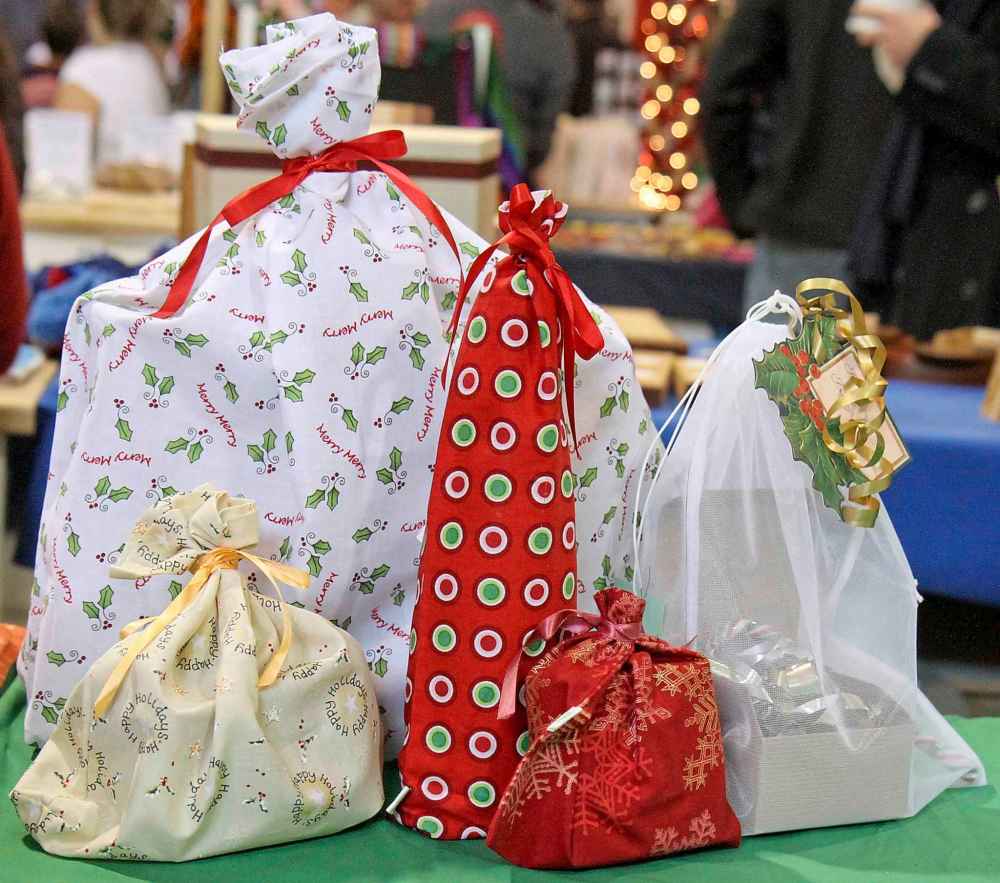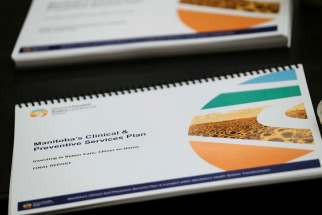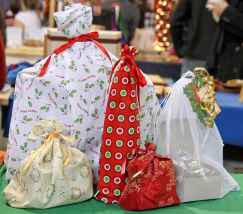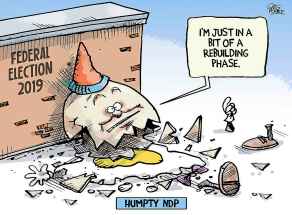A real Christmas present — no gifts More Manitobans are saying enough to all that holiday stuff
Read this article for free:
or
Already have an account? Log in here »
To continue reading, please subscribe:
Monthly Digital Subscription
$0 for the first 4 weeks*
- Enjoy unlimited reading on winnipegfreepress.com
- Read the E-Edition, our digital replica newspaper
- Access News Break, our award-winning app
- Play interactive puzzles
*No charge for 4 weeks then price increases to the regular rate of $19.00 plus GST every four weeks. Offer available to new and qualified returning subscribers only. Cancel any time.
Monthly Digital Subscription
$4.75/week*
- Enjoy unlimited reading on winnipegfreepress.com
- Read the E-Edition, our digital replica newspaper
- Access News Break, our award-winning app
- Play interactive puzzles
*Billed as $19 plus GST every four weeks. Cancel any time.
To continue reading, please subscribe:
Add Free Press access to your Brandon Sun subscription for only an additional
$1 for the first 4 weeks*
*Your next subscription payment will increase by $1.00 and you will be charged $16.99 plus GST for four weeks. After four weeks, your payment will increase to $23.99 plus GST every four weeks.
Read unlimited articles for free today:
or
Already have an account? Log in here »
Hey there, time traveller!
This article was published 29/11/2019 (2207 days ago), so information in it may no longer be current.
The holidays are supposed to be a time of eat, drink and be merry. So why do they often feel like a time to eat, cry, and be stressed?
There’s a lot of expectation around this time of year, especially when it comes to gift-giving. Whether you’re working as a secret Santa or actual Santa, there’s real pressure to give the perfect gift — and get into credit card debt doing it. And for those who can’t put a pile of presents under a twinkling tree, the pressure is even more painful.
And then there’s the matter of waste. The endless Amazon packages that are then wrapped up in shiny, unrecyclable paper. The appreciated but unwanted knick-knacks and tchotchkes that end up in closets. The plastic toys that are eschewed by toddlers for the boxes they came in.
The whole process can end up being a joy-suck, which is why many people are rethinking their approach to gift-giving — or opting out of it entirely.
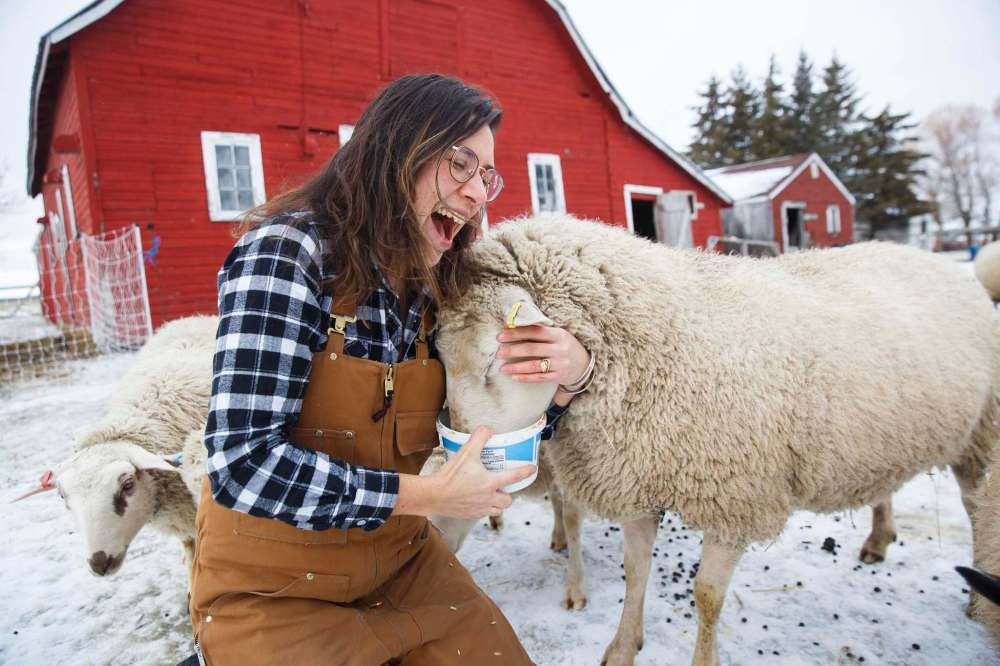
Christel Lanthier’s lightbulb moment came when she moved from Winnipeg to Ste-Geneviève, 60 kilometres southeast of the city, where she and her husband, Joey Fiola, run Ferme Fiola Farm, a heritage sheep farm. While their approach to farming is rooted in sustainability and zero-waste practices — they use sheep for meat and wool, as well as the fat to make candles, lotions and balms — it was not having municipal garbage collection that really opened Lanthier’s eyes to how much waste could be diverted to recycling and compost, and how much plastic she was putting out to recycle. “I’m so done with plastic,” she says.
She’s also done with stuff. Lanthier, 35, is a mom to three girls, ages six, four, and 18 months, so she’s seen first-hand how kids have a way of accumulating things.
“Your house gets full of stuff, stuff, stuff, all the time,” she says. “Thinking about that, I just said, ‘I don’t want more things in the house that aren’t going to be used, or degradable.’ I either don’t want things, or I want them to be hyper-usable, or I want them to be passed down or hand-me-down.”
Sentiment is recyclable, wrapping is not
By Eva Wasney
Even if you don’t commit to a zero-waste holiday, there are ways to reduce the trash you create this time of year — particularly when it comes to wrapping presents.
“A lot of traditional gift-wrapping is not recyclable, despite what people may think, especially if its got any glitter on it and a lot of it is created by plastics that can’t be recycled,” says Heather McKie, program co-ordinator at Winnipeg’s Green Action Centre.
In Manitoba, wrapping paper, bows and ribbons, gift bags, tissue paper and plastic shopping bags should not go in the blue bin.
Here are some of McKie’s suggestions for sustainable wrapping options:
By Eva Wasney
Even if you don’t commit to a zero-waste holiday, there are ways to reduce the trash you create this time of year — particularly when it comes to wrapping presents.
“A lot of traditional gift-wrapping is not recyclable, despite what people may think, especially if its got any glitter on it and a lot of it is created by plastics that can’t be recycled,” says Heather McKie, program co-ordinator at Winnipeg’s Green Action Centre.
In Manitoba, wrapping paper, bows and ribbons, gift bags, tissue paper and plastic shopping bags should not go in the blue bin.
Here are some of McKie’s suggestions for sustainable wrapping options:
● Wrap presents with a tea towel or scarf; the fabric can be an extra gift for the recipient.
● Use plain brown paper, and add some flair by drawing or painting the paper.
● Reuse old gift bags or put presents in a nice reusable bag.
● Use a newspaper, map or old calendar as wrapping paper.
● Swap plastic ribbons for yarn or string.
● Spice up the package with natural items such as rosemary, twigs or flowers.
There are also options for reducing waste when decorating your home or hosting family gatherings.
Instead of buying new baubles for your tree, consider shopping second-hand or asking a family member for some hand-me-down decorations — these pieces will likely have more sentimental value than a new trinket.
Dried fruit, cinnamon sticks and leftover evergreen boughs from your local tree lot can be turned into natural garlands or centrepieces.
If the whole clan is coming over for Christmas dinner, use real plates, cutlery and glassware instead of paper or plastic. Fabric napkins are a bit of an upfront investment, but you will be able to use them year after year.
An added benefit, says McKie, is that reusing, thrifting and using natural decor is often a cheaper option.
“Not only is it more sustainable to reuse what’s already out there and reducing the demand of creating new stuff… we can also save money because when you buy things brand new they’re often more expensive,” she says.
eva.wasney@freepress.mb.ca
Twitter: @evawasney
This year, she’s applying those ground rules for holiday gifting in what will be her first zero-waste Christmas. “The last few years of gift-giving, especially among my siblings and parents, I try to make things I have access to here and things I know they would love, appreciate, need or want. I have been meaning to have that conversation and say, ‘Hey, can we all do this?’
“I think the concept is getting more accepted out there as well. I think people realize how many things they already have, and we live in such a throw-away society, too.”
Zero-waste or less-waste gifting doesn’t need to be daunting, Lanthier says, nor do you need Pinterest-perfect crafting skills. Buying things people can use up — such as candles, jams, wine, craft beer, baking — qualify, especially if they are gifted in a reusable or recyclable container. Supporting local artisans, producers and makers is also a way to lessen our impact on the environment and stimulate our economy. If Lanthier’s children ask for a specific toy, she will see if she can find it second-hand.
She is also a proponent of regifting.
“I think regifting things is the trickiest one because, when I was growing up, it was looked down upon,” she says. “Regifting was like, ‘Oh you’re cheap.’ Something one person doesn’t want might be something someone really wants. I think that taboo is going away, in my circles, anyway.”
And sometimes the best gift is time. Experiences, such as a spa date or concert, make excellent, zero-waste gifts that, in turn, allow you to make lasting memories.
“I feel like isolation with social media is so huge, just doing an activity, in person, with people is so great,” Lanthier says.
Other people, such as Suzanne Gagné, have scrapped presents.
“At this point, in your 30s, you have what you want,” says the 38-year-old Winnipegger. “Whatever you need, you go get yourself. I find (gifting) is something we do because it’s supposed to be done, and I don’t think it’s a necessity. I think experiences are a lot more worthwhile than having material things.”
“At this point, in your 30s, you have what you want. Whatever you need, you go get yourself. I find (gifting) is something we do because it’s supposed to be done, and I don’t think it’s a necessity. I think experiences are a lot more worthwhile than having material things.” – Suzanne Gagné
Her family went gift-free about five or six years ago. One year, they took a family trip through California, Arizona and Nevada. This year, Gagné and her boyfriend are plotting a hot-weather vacation as their Christmas gift to each other. But mostly, the holidays are just about spending time together at home.
And thoughtful gifts, she points out, don’t need to be limited to the holidays. On a trip to Israel, for example, Gagné spotted a bracelet she knew a friend would love, and gifted it to her when she got home. The seasonal obligation is taken out of the equation.
Of course, it can be easy to be tempted by sales, especially on the heels of Black Friday and heading into Cyber Monday. Lanthier recommends going into holiday gifting with a plan — and to think hard about needs versus wants.
“It’s like, ‘I want to do a zero-waste Christmas but oh, our computer died,’ ‘‘ Lanthier says. “We really need a new computer. Black Friday is coming. Hmm. I’m not going to be hypocritical and say I’m never going to do any of these things, but it’s about planning, and having that forethought. You don’t have to feel bad about buying something you really need.”
For Gagné, eliminating the pressure and expectations associated with presents has resulted in happier holidays.
“It’s great,” she says. “The mall is horrible this time of year, and everyone is trying to get things done and is cranky. You see people screaming at each other over parking spots, which is the exact opposite of what Christmas is supposed to be about.”
jen.zoratti@freepress.mb.ca
Twitter: @JenZoratti
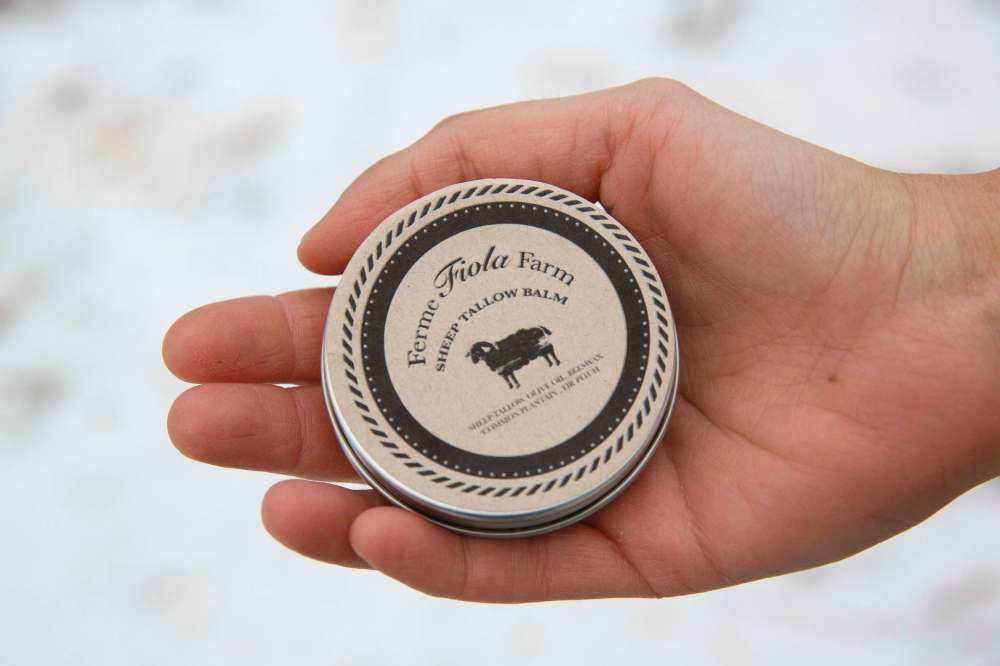

Jen Zoratti is a Winnipeg Free Press columnist and author of the newsletter, NEXT, a weekly look towards a post-pandemic future.
Our newsroom depends on a growing audience of readers to power our journalism. If you are not a paid reader, please consider becoming a subscriber.
Our newsroom depends on its audience of readers to power our journalism. Thank you for your support.

